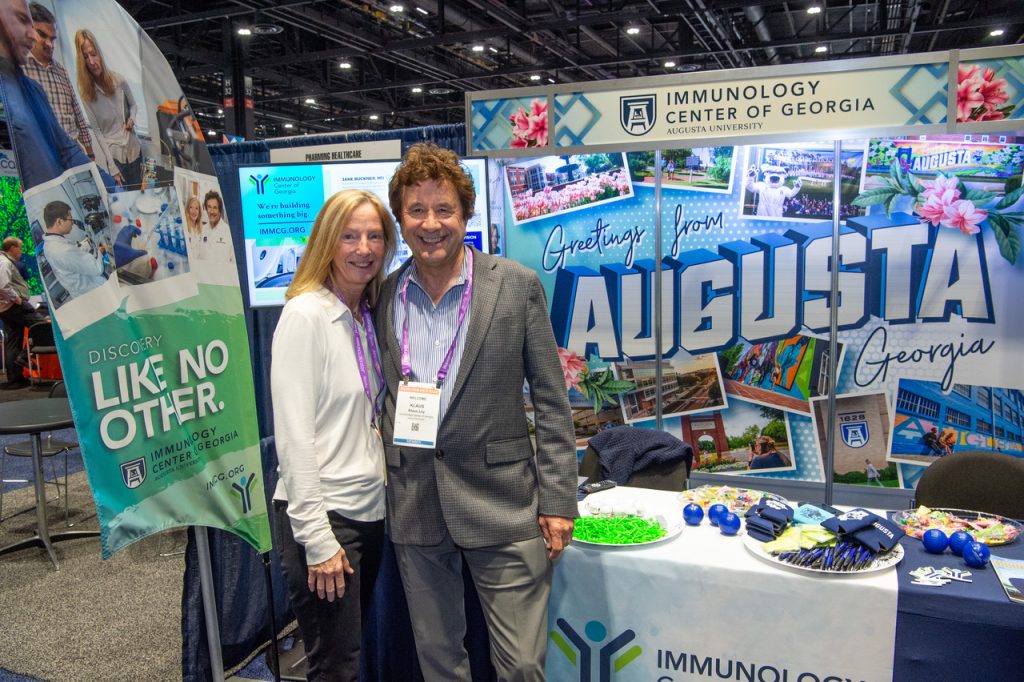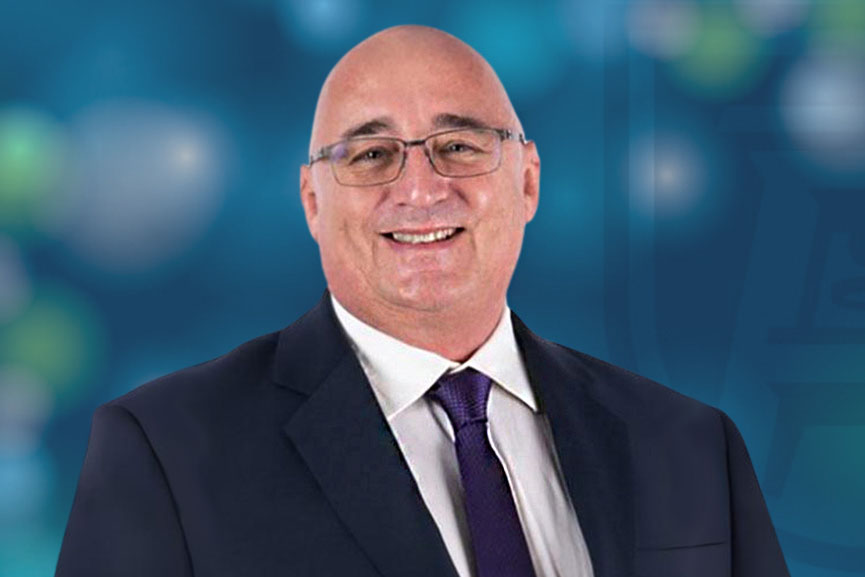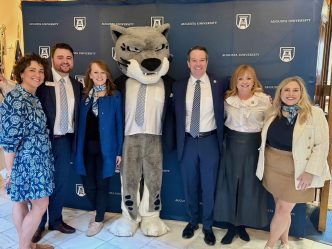Nicholas Gascoigne, PhD, whose research explores CAR-T cell function in cancer immunotherapy, is the newest faculty member at the Immunology Center of Georgia (IMMCG).
Gascoigne, who previously served as professor and head of the Department of Microbiology and Immunology at the National University of Singapore and before that at the Scripps Research Institute in La Jolla, California, will start his role with IMMCG, as well as the Georgia Cancer Center, as a professor of medicine on Dec. 1, 2024.
IMMCG, established in 2022 as part of the Medical College of Georgia at Augusta University, is led by Georgia Research Alliance Eminent Scholars Klaus Ley, MD, and Catherine “Lynn” Hedrick, PhD. Gascoigne joins a team of 15 immunology faculty members, 11 of whom were hired since the center’s founding. IMMCG faculty have 35 grants from various institutions, including eight from the National Institutes of Health (NIH).
“We are delighted to welcome Dr. Gascoigne to our team,” said Hedrick. “His extensive experience and pioneering research in T cell function and cancer immunotherapy will be an invaluable contribution to IMMCG’s mission of enriching lives through new treatments, therapies, and disease preventions.”

Gascoigne’s research focuses on T cell signaling, activation and development, with a particular focus on the impact of the microbiome and the signaling pathways in CAR-T cells, a type of cancer immunotherapy treatment that uses genetically altered T cells to fight cancer.
T cells are white blood cells that help the immune system respond to disease and kill abnormal cells. CAR T cells are created by adding a gene for a special receptor, called a chimeric antigen receptor (CAR), to T cells taken from a patient’s blood. The CAR allows the T cells to bind to specific proteins on cancer cells and kill the targeted cancer cells.
Gascoigne brings an illustrious career in immunology to IMMCG. He obtained his PhD from University College London, followed by a postdoctoral fellowship at Stanford University. He then joined the Scripps Research Institute in California, advancing to full professor by 2005. In 2013, he became a professor at Yong Loo Lin School of Medicine at the National University of Singapore, leading the Department of Microbiology and Immunology until 2020.
“I am convinced that the vibrant new faculty and first-rate facilities will make IMMCG a national leader in the field.”
Nicholas Gascoigne, PhD
Throughout his career, Gascoigne has been an active member of several prestigious organizations, including the American Association of Immunologists, the British Society of Immunology and the Singaporean Society for Immunology, where he served as president from 2017 to 2021. He was also elected a fellow of the Royal Society of Biology in 2023.
“I chose to join IMMCG and contribute to research at the Georgia Cancer Center and the Medical College of Georgia because of the exciting new team here and the chance to help build a great immunology center under the leadership of Drs. Ley and Hedrick,” Gascoigne said. “I look forward to joining a dynamic team of investigators committed to exploring innovative new approaches to treating cancer and autoimmune diseases.”
By leveraging the latest technology and fostering a collaborative environment, IMMCG aims to be at the forefront of immunology research while training the next generation of immunologists. In his new role, Gascoigne will also serve as a mentor to junior faculty members, postdoctoral fellows and graduate students at IMMCG.
“I am convinced that the vibrant new faculty and first-rate facilities will make IMMCG a national leader in the field,” Gascoigne said. “My lab will focus on improving chimeric antigen receptor (CAR-T) therapies, especially in settings that are allogeneic, or genetically dissimilar, to bring treatments to patients faster and more affordably. We will also identify genes that can be inhibited, knocked out, or overexpressed to enhance T cell activity against tumors, applicable to both CAR-T and natural T cell therapies, and to both solid tumors and leukemias and lymphomas.”
 Augusta University
Augusta University




